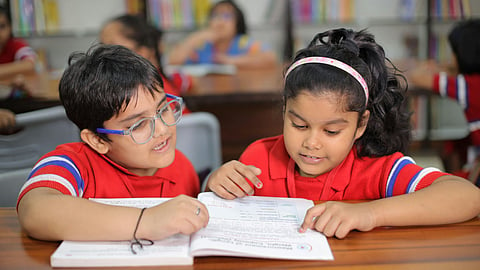

Once associated with pages of repeated math problems and essay writing, homework in Indian schools has progressively evolved into a more diverse and learner-friendly activity, mirroring broader shifts in educational philosophy.
As classrooms across India adapt to new learning approaches, the simple homework assignment is silently changing — from a despised duty to a possible instrument for discovery, cooperation, and creativity.
Educators say homework, which was once based on rote learning, is being altered by governmental changes, digital resources, and new teaching styles that encourage creativity, critical thinking, and student well-being, PTI reports.
Historically, the level of homework assigned to children has been identified as a source of worry.
The 2018 Annual Status of Education Report (ASER) revealed that 74 per cent of urban Indian students receive daily homework, despite persistent learning disparities, calling the efficacy of sheer volume into doubt.
According to the "10-Minute Rule" developed by the National Parent Teacher Association (National PTA) and the National Education Association in the United States of America, children should accomplish around 10 minutes of homework per night per grade level. This equates to 10 minutes of homework for first graders and up to 120 minutes for twelfth graders.
While the concept of homework has evolved in India, in practice, many Indian students often spend 3-4 hours daily on homework.
The National Education Policy (NEP) 2020, which promotes reducing the academic load on students and promoting activity-based learning, has contributed to the shift in the idea of homework, experts note.
Since then, the Central Board of Secondary Education (CBSE) and a number of state boards have released circulars requesting that teachers provide students "enjoyable, experimental, and application-oriented" assignments.
“Instead of simply asking for memorised facts, homework increasingly requires students to understand the ‘why’ and ‘how’ of concepts. Students are encouraged to learn through doing, with emphasis on experiments, projects, and innovation challenges rather than just reading textbooks. The new methods promote critical thinking, analysis, and interpretation of information, skills often stifled by rote learning,” a senior CBSE official explained.
